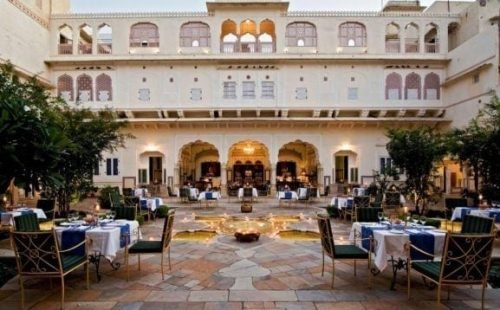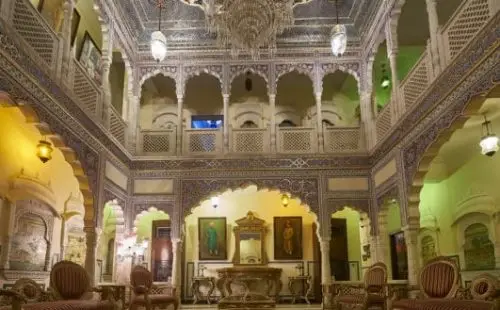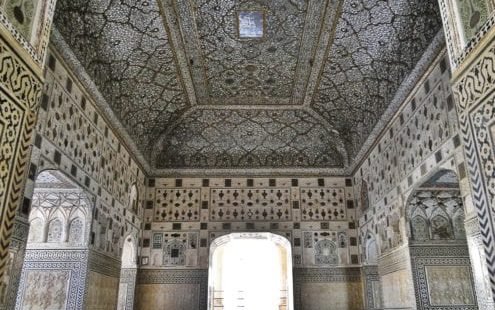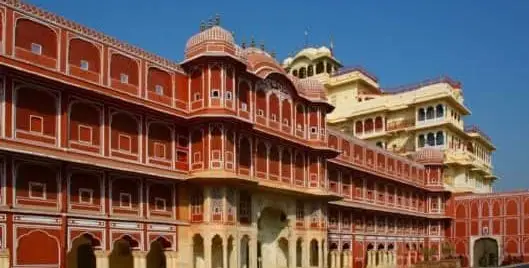
Palace in Jaipur
Jaipur is a land of sevra attractions, forts, palaces and lots more. The state of Rajasthan is well known for its collection of ancient structures, small and large.Thus, you will by no means run out of architectural beauties when it comes to Rajasthan, particularly regions in and around Jaipur. You would be acquainted with the listing of sights and forts in Jaipur. We will discover the areas around Jaipur. Here are the top forts, which are around one hundred fifty km away from Jaipur.
List of Palace in Jaipur
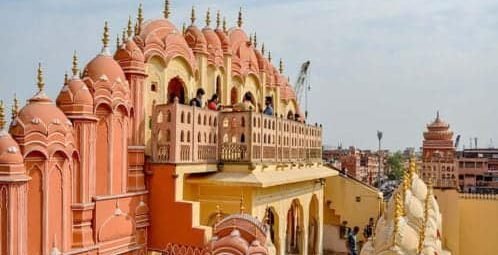
Hawa Mahal Palace
Amer Fort is the high-quality traveller enchantment of Jaipur and the
sprawling complicated combines each large fortifications with unexpected
splendor and charm.It is one of the most well-known forts of Rajasthan.
Amer, originally, was once the capital of the country earlier than
Jaipur. It is an historic fort, built in 1592 by Raja Man Singh.The Amer
Fort used to be constructed in crimson sandstone and marble and the
Maotha Lake adds a certain attraction to the whole Fort. it is located
on a natural ridge 11km north of Jaipur.
Amer Fort is open every day from 8:00am to
5:30pm and the entry rate is Rs 200
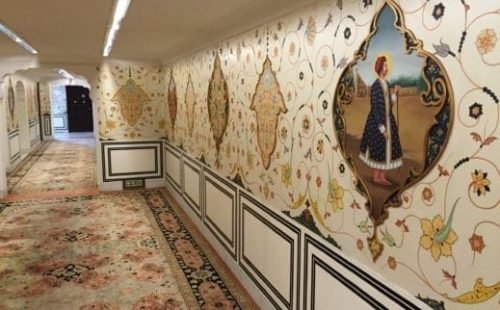
Rambagh Palace
Nahargarh Fort was once built in 1734 by means of Maharaja Sawai Jai Singh II, founder of Jaipur, on the Aravalli hills, as a shy away place. Nahargarh Fort is linked to the Jaigarh Fort through its fortifications. It is believed that the development of this fortress was once obstructed by way of the spirit of a Rathore prince, Nahar Singh Bhomia.
City Palace
Jaipur (The PINK CITY of India) founded on 18 November 1727 by Jai Singh II, the Raja of Amer who ruled from 1699 to 1743. The city is named by Maharaja Jai Singh II who was the primary organizer of this city. He was a Rajput and ruled the Rajasthan region from 1699 and 1744.The city was originally named as Jainagara which in Sanskrit meant as the ‘city of victory’.Later it was named as ‘pink city’ in the early 20th century by the British.Jaipur, later became the capital of the Indian state of Rajasthan.After his 70 years of reign in Amer(1688-1758), Maharaja Jai Singh II planned to shift his capital 11 km away to Jaipur to accommodate the growing population.
Jal Mahal Palace
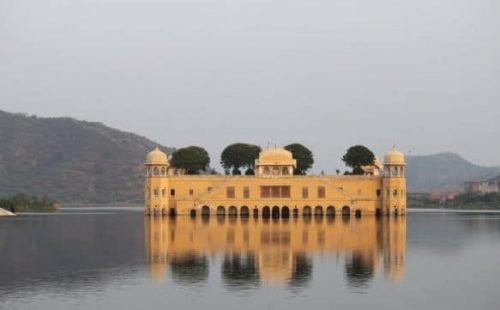
Jaipur (The PINK CITY of India) founded on 18 November 1727 by Jai Singh II, the Raja of Amer who ruled from 1699 to 1743. The city is named by Maharaja Jai Singh II who was the primary organizer of this city. He was a Rajput and ruled the Rajasthan region from 1699 and 1744.The city was originally named as Jainagara which in Sanskrit meant as the ‘city of victory’.Later it was named as ‘pink city’ in the early 20th century by the British.Jaipur, later became the capital of the Indian state of Rajasthan.After his 70 years of reign in Amer(1688-1758), Maharaja Jai Singh II planned to shift his capital 11 km away to Jaipur to accommodate the growing population.
Samode Palace
Located deep within the walled city, the City Palace Complex used to be conceived and constructed by Maharaja Sawai Jai Singh II, the founder of Jaipur. A beautiful fusion of Mughal and Rajput architecture, the palace is nonetheless home to the ultimate ruling royal family which lives in a private area of the palace. Maharaja Sawai Jai Singh II is credited with constructing most of the structures, but it used to be extended upon with the aid of later rulers as well. The City Palace Complex consists of the Mubarak Mahal (the palace of reception) and the Maharani’s Palace (the palace of the queen).
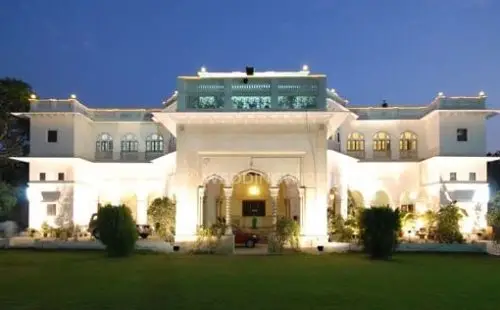
Hari Mahal Palace
Jaipur (The PINK CITY of India) founded on 18 November 1727 by Jai Singh II, the Raja of Amer who ruled from 1699 to 1743. The city is named by Maharaja Jai Singh II who was the primary organizer of this city. He was a Rajput and ruled the Rajasthan region from 1699 and 1744.The city was originally named as Jainagara which in Sanskrit meant as the ‘city of victory’.Later it was named as ‘pink city’ in the early 20th century by the British.Jaipur, later became the capital of the Indian state of Rajasthan.After his 70 years of reign in Amer(1688-1758), Maharaja Jai Singh II planned to shift his capital 11 km away to Jaipur to accommodate the growing population.
Shahpura Haveli
Located deep within the walled city, the City Palace Complex used to be conceived and constructed by Maharaja Sawai Jai Singh II, the founder of Jaipur. A beautiful fusion of Mughal and Rajput architecture, the palace is nonetheless home to the ultimate ruling royal family which lives in a private area of the palace. Maharaja Sawai Jai Singh II is credited with constructing most of the structures, but it used to be extended upon with the aid of later rulers as well. The City Palace Complex consists of the Mubarak Mahal (the palace of reception) and the Maharani’s Palace (the palace of the queen).
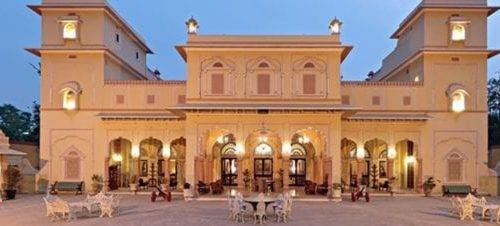
Narain Niwas Palace
Jaipur (The PINK CITY of India) founded on 18 November 1727 by Jai Singh II, the Raja of Amer who ruled from 1699 to 1743. The city is named by Maharaja Jai Singh II who was the primary organizer of this city. He was a Rajput and ruled the Rajasthan region from 1699 and 1744.The city was originally named as Jainagara which in Sanskrit meant as the ‘city of victory’.Later it was named as ‘pink city’ in the early 20th century by the British.Jaipur, later became the capital of the Indian state of Rajasthan.After his 70 years of reign in Amer(1688-1758), Maharaja Jai Singh II planned to shift his capital 11 km away to Jaipur to accommodate the growing population.
Sheesh Mahal
Located deep within the walled city, the City Palace Complex used to be conceived and constructed by Maharaja Sawai Jai Singh II, the founder of Jaipur. A beautiful fusion of Mughal and Rajput architecture, the palace is nonetheless home to the ultimate ruling royal family which lives in a private area of the palace. Maharaja Sawai Jai Singh II is credited with constructing most of the structures, but it used to be extended upon with the aid of later rulers as well. The City Palace Complex consists of the Mubarak Mahal (the palace of reception) and the Maharani’s Palace (the palace of the queen).

